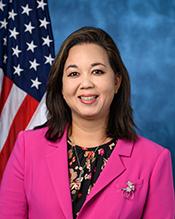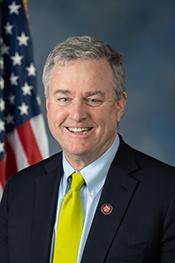0
0
0
No Hungry Kids in Schools Act
12/15/2023, 3:57 PM
Summary of Bill HR 3112
The No Hungry Kids in Schools Act, also known as Bill 118 hr 3112, is a piece of legislation currently being considered by the US Congress. The main goal of this bill is to address the issue of childhood hunger in schools by providing additional funding and resources to ensure that all students have access to nutritious meals.
One of the key provisions of the No Hungry Kids in Schools Act is the expansion of the National School Lunch Program, which provides free or reduced-price meals to low-income students. This bill aims to increase the number of students eligible for these meals and streamline the application process to make it easier for families to access this important benefit.
Additionally, the bill includes provisions to improve the quality of school meals by increasing funding for fresh fruits and vegetables, whole grains, and other nutritious options. It also aims to reduce food waste in schools by implementing strategies to better manage food inventory and distribution. Furthermore, the No Hungry Kids in Schools Act includes measures to address food insecurity during school breaks by expanding access to summer meal programs and other resources for students in need. Overall, the No Hungry Kids in Schools Act is a comprehensive piece of legislation that seeks to ensure that all students have access to nutritious meals at school, regardless of their socioeconomic status. By addressing the issue of childhood hunger, this bill has the potential to improve the health and well-being of students across the country.
One of the key provisions of the No Hungry Kids in Schools Act is the expansion of the National School Lunch Program, which provides free or reduced-price meals to low-income students. This bill aims to increase the number of students eligible for these meals and streamline the application process to make it easier for families to access this important benefit.
Additionally, the bill includes provisions to improve the quality of school meals by increasing funding for fresh fruits and vegetables, whole grains, and other nutritious options. It also aims to reduce food waste in schools by implementing strategies to better manage food inventory and distribution. Furthermore, the No Hungry Kids in Schools Act includes measures to address food insecurity during school breaks by expanding access to summer meal programs and other resources for students in need. Overall, the No Hungry Kids in Schools Act is a comprehensive piece of legislation that seeks to ensure that all students have access to nutritious meals at school, regardless of their socioeconomic status. By addressing the issue of childhood hunger, this bill has the potential to improve the health and well-being of students across the country.
Read the Full Bill
Current Status of Bill HR 3112
Bill HR 3112 is currently in the status of Bill Introduced since May 5, 2023. Bill HR 3112 was introduced during Congress 118 and was introduced to the House on May 5, 2023. Bill HR 3112's most recent activity was Referred to the House Committee on Education and the Workforce. as of May 5, 2023
Bipartisan Support of Bill HR 3112
Total Number of Sponsors
1Democrat Sponsors
1Republican Sponsors
0Unaffiliated Sponsors
0Total Number of Cosponsors
34Democrat Cosponsors
34Republican Cosponsors
0Unaffiliated Cosponsors
0Policy Area and Potential Impact of Bill HR 3112
Primary Policy Focus
Agriculture and FoodAlternate Title(s) of Bill HR 3112
No Hungry Kids in Schools Act
No Hungry Kids in Schools Act
To amend the Richard B. Russell National School Lunch Act to establish statewide community eligibility for certain special assistance payments, and for other purposes.
Comments
Sponsors and Cosponsors of HR 3112
Latest Bills
ESTUARIES Act
Bill HR 3962December 13, 2025
Federal Maritime Commission Reauthorization Act of 2025
Bill HR 4183December 13, 2025
National Defense Authorization Act for Fiscal Year 2026
Bill S 1071December 13, 2025
Enduring Justice for Victims of Trafficking Act
Bill S 2584December 13, 2025
Technical Corrections to the Northwestern New Mexico Rural Water Projects Act, Taos Pueblo Indian Water Rights Settlement Act, and Aamodt Litigation Settlement Act
Bill S 640December 13, 2025
Incentivizing New Ventures and Economic Strength Through Capital Formation Act of 2025
Bill HR 3383December 13, 2025
BOWOW Act of 2025
Bill HR 4638December 13, 2025
Northern Mariana Islands Small Business Access Act
Bill HR 3496December 13, 2025
Wildfire Risk Evaluation Act
Bill HR 3924December 13, 2025
Energy Choice Act
Bill HR 3699December 13, 2025





